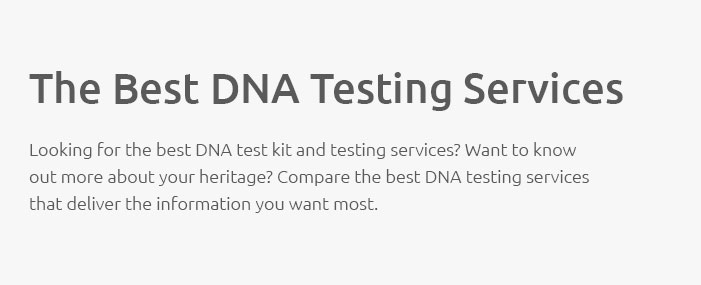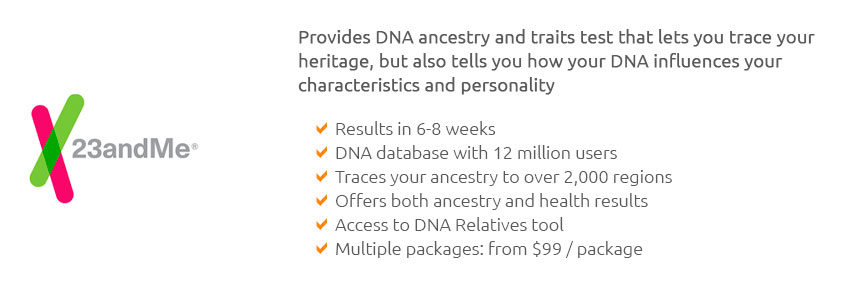 |
 |
 |
|---|
 |
 |
|---|
 |
|
|---|---|
 |
 |
 |
 |
 |
 |
 |
 |
 |
 |
 |
 |
 |
 |
 |
 |
|---|
Exploring the World of Family Tree DNA TestingIn the vast landscape of modern genealogical research, DNA testing has emerged as an invaluable tool for individuals eager to trace their ancestry and uncover long-lost familial connections. Family Tree DNA, a prominent player in this domain, offers an array of tests designed to cater to diverse genealogical needs. As we delve into the intricacies of DNA testing, it becomes imperative to understand both its potential and its limitations, as well as the nuances of interpreting the data it yields. Family Tree DNA provides a comprehensive suite of tests, including autosomal DNA, Y-DNA, and mtDNA tests. Each of these plays a distinct role in painting a broader picture of one's ancestry. The autosomal DNA test is particularly popular among users due to its ability to survey genetic material inherited from all ancestral lines, offering insights into ethnic backgrounds and potential matches with other individuals in the database. On the other hand, Y-DNA and mtDNA tests focus specifically on paternal and maternal lineages, respectively, offering a more targeted approach to exploring one's direct paternal or maternal heritage. While the allure of uncovering one's ancestral roots through DNA is undeniable, there are several expert tips to consider for those embarking on this journey. Firstly, it is essential to approach the process with an open mind, acknowledging that the results may reveal unexpected connections or previously unknown branches of the family tree. Furthermore, understanding that DNA testing is a complement to traditional genealogical research, rather than a replacement, is crucial. Combining DNA results with historical records can provide a more complete and accurate family history. Another important aspect is the interpretation of the results. Although the data provided by Family Tree DNA is extensive, the onus is on the user to understand and analyze it effectively. Engaging with online forums and communities, where experienced genealogists share insights and advice, can be incredibly beneficial. These platforms offer a wealth of knowledge that can help users navigate the sometimes complex world of genetic genealogy. When considering privacy and data security, Family Tree DNA has made concerted efforts to ensure that users’ genetic information is protected. However, it is always advisable to thoroughly review the privacy policies and terms of service before participating in any DNA testing program. Users should feel comfortable with how their data will be used and have the option to control the sharing of their information. In summary, DNA testing with Family Tree DNA offers a fascinating glimpse into one's past, connecting the present with the myriad stories of ancestors who came before. With careful analysis and a thoughtful approach, individuals can unlock the mysteries of their lineage, bridging gaps in their family history and forging a deeper connection to their heritage. For those willing to embark on this exploratory journey, the rewards can be profound, revealing a tapestry of human experience that stretches across generations and continents. https://www.familytreedna.com/products/family-finder?srsltid=AfmBOorbHVhuBrlkkjXTcxxK2OLjODzwVf7wppLy-ik6vjM4E9T-NdBA
Discover your origins and connect with your DNA relatives with a simple test. - $79 - $79 - Take Family Finder- our Autosomal DNA test - to discover your ethnic ... https://www.familytreedna.com/products/single-tests?srsltid=AfmBOoolOD2PwtWE2nptyEktZ7z3yW4hFHYhfE0LIrwc2OlkaF_LCf1l
Explore which tests are best for you and learn more about your ancestry. Single Tests, Bundle Tests, Gift Cards https://www.familytreedna.com/?srsltid=AfmBOopCZ0wThvABT7uYAP__XwjZWtoHie6YWKI2Zc37jhFMmaM7ft_I
Learn about your personal history and follow the path of your ancestors with FamilyTreeDNA's industry-leading tests.
|
|---|